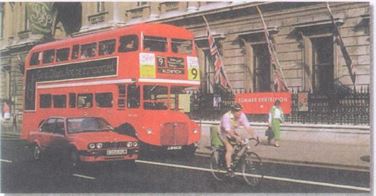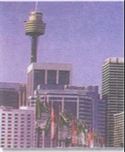FCE listening about cycling in the city
چگونه از اسم ها صفت بسازیم

Listening 2
Part 3
Multiple matching 1.55 - 1.59

1 When, if ever, do you use a bicycle?
How common is it for people to cycle in the cities in your country? How safe is it?
2 You will hear five different people speaking on the subject of cycling within a city.
For questions 1-5, choose from the list (A-H) the phrase which best summarizes what each speaker is talking about. Use the letters only once. There are three extra letters which you do not need to use.
A a move in the right direction
B the consequences of breaking the law
C the need to educate the public
D a lack of open spaces to cycle in
E the problem of pollution
F a feeling of freedom
G the dangers of not being visible to drivers
H the intolerance of other road users
Speaker1
Speaker2
Speaker3
Speaker4
Speaker5
3 What measures can be taken by the government and/or local authorities in your country to encourage cycling?
Vocabulary 3: Phrasal verbs
1 Use the context to help you work out the meanings of the phrasal verbs in bold in these sentences from the listening.

1 I get shouted at by people who still haven't caught on that it's me that has right of way, not them.
2 I get off the train, put on my helmet and head for the office.
3 Someone in the town hall came up with a nice idea to promote cycling in the city.
4 There's a real festival atmosphere now, with thousands of cyclists of all ages turning out every month.
5 Sometimes you come across some really nasty drivers in the city.
6 People don't generally use a bike to get about the city.
2 Discuss the following questions with another student.
Where are you heading for after this class?
Did you come across any friendly people on your last holiday?
What is the best way to get about your town or city?
Word formation: Adjectives
0 There's a cycle path that goes right round the city, and VARIOUS (VARY) shorter ones within it.
1 It's pedestrians, not motorists, that have to be (CARE) they don't wander onto them.
2 And of course, cycling is just so (HEALTH) I've never felt fitter.
3 We need a whole series of (ADDITION) measures to make this a more cycle-friendly city.
4 It's really (DANGER) sometimes I lose my balance and nearly fall off.
5 They get (PATIENCE) if they have to slow down for me.
6 I get beeped and shouted at all the time - it's very (PLEASE) .
7 It's not an (ATTRACT) option, really, given the quality of the air here.
8 We're in the middle of a huge (INDUSTRY) area.
2 a Copy the following table with adjective suffixes into your notebook. Complete the table by writing the adjectives you wrote for exercise 1 in the appropriate columns.
-ous -ful -y -al -ent -ant -ive
various .... ..... ..... ...... ...... .....
b Use the appropriate suffixes from a to create adjectives from the words in the box.
You may need to make further spelling changes. Add the words to the table in your notebook. There are three words for each column.
Example: ignore - ignorant
ignore differ origin poison peace protect cloud
beauty hunger appear decide tolerate mystery finance
fog humour describe hesitate benefit succeed obey
Reading and Use of English 2
Part 3
Word formation
For questions 1-10, read the text below. Use the word given in capitals at the end of some of the lines to form a word that fits in the gap in the same line. There is an example at the beginning (0). Write your answers IN CAPITAL LETTERS.

Monorails
Monorail systems are (0) FREQUENTLY(FREQUENT) associated with airports, zoos and amusement parks. They can, however, also be integrated into a city's main transport infrastructure and in recent decades a (1)(SIGNIFY) number have been built around the world for this purpose. In particular, there are (2)(NUMBER) examples in Asia, with Japan leading the way. Elsewhere, Sydney, Moscow and Sao Paolo all have modern monorails. Perhaps the most (3)(USUAL) system in operation was also one of the first to be built: the 'Schwebebahn' in Wuppertal, Germany, whose trains are suspended from its track, was opened in 1901. Monorails run over short (4)(DISTANT) providing a quick and efficient method of urban transport. Supporters point to their (5)(IMPRESS) safety record and the fact that, because they are electrically powered, they have an (6)(ENVIRONMENT) advantage over other more polluting forms of city transport. They are also (7)(EXPENSE) to operate. However, among the objections to monorail systems are the high costs of construction and the unpleasant (8)(APPEAR) of the elevated tracks.


